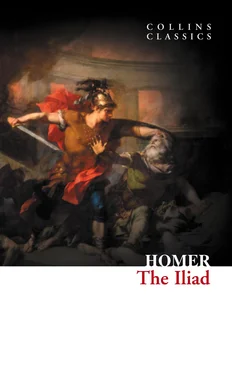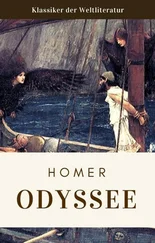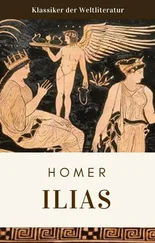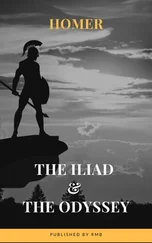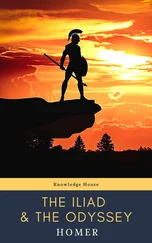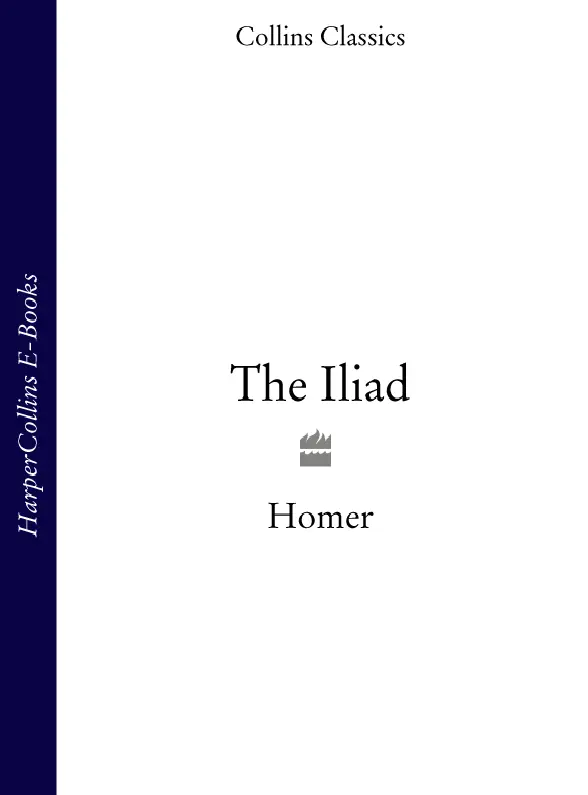

Cover
Title Page THE ILIAD Homer
Introduction
Pope’s Preface to The Iliad of Homer
Book I
Book II
Book III
Book IV
Book V
Book VI
Book VII
Book VIII
Book IX
Book X
Book XI
Book XII
Book XIII
Book XIV
Book XV
Book XVI
Book XVII
Book XVIII
Book XIX
Book XX
Book XXI
Book XXII
Book XXIII
Book XXIV
Concluding Note
Classic Literature: Words and Phrases Adapted from the Collins English Dictionary
About the Author
History of Collins
Copyright
About the Publisher
Scepticism is as much the result of knowledge, as knowledge is of scepticism. To be content with what we at present know, is, for the most part, to shut our ears against conviction; since, from the very gradual character of our education, we must continually forget, and emancipate ourselves from, knowledge previously acquired; we must set aside old notions and embrace fresh ones; and, as we learn, we must be daily unlearning something which it has cost us no small labour and anxiety to acquire.
And this difficulty attaches itself more closely to an age in which progress has gained a strong ascendency over prejudice, and in which persons and things are, day by day, finding their real level, in lieu of their conventional value. The same principles which have swept away traditional abuses, and which are making rapid havoc among the revenues of sinecurists, and stripping the thin, tawdry veil from attractive superstitions, are working as actively in literature as in society. The credulity of one writer, or the partiality of another, finds as powerful a touchstone and as wholesome a chastisement in the healthy scepticism of a temperate class of antagonists, as the dreams of conservatism, or the impostures of pluralist sinecures in the Church. History and tradition, whether of ancient or comparatively recent times, are subjected to very different handling from that which the indulgence or credulity of former ages could allow. Mere statements are jealously watched, and the motives of the writer form as important an ingredient in the analysis of his history, as the facts he records. Probability is a powerful and troublesome test; and it is by this troublesome standard that a large portion of historical evidence is sifted. Consistency is no less pertinacious and exacting in its demands. In brief, to write a history, we must know more than mere facts. Human nature, viewed under an induction of extended experience, is the best help to the criticism of human history. Historical characters can only be estimated by the standard which human experience, whether actual or traditionary, has furnished. To form correct views of individuals we must regard them as forming parts of a great whole—we must measure them by their relation to the mass of beings by whom they are surrounded, and, in contemplating the incidents in their lives or condition which tradition has handed down to us, we must rather consider the general bearing of the whole narrative, than the respective probability of its details.
It is unfortunate for us, that, of some of the greatest men, we know least, and talk most. Homer, Socrates, and Shakespere have, perhaps, contributed more to the intellectual enlightenment of mankind than any other three writers who could be named, and yet the history of all three has given rise to a boundless ocean of discussion, which has left us little save the option of choosing which theory or theories we will follow. The personality of Shakespere is, perhaps, the only thing in which critics will allow us to believe without controversy; but upon everything else, even down to the authorship of plays, there is more or less of doubt and uncertainty. Of Socrates we know as little as the contradictions of Plato and Xenophon will allow us to know. He was one of the dramatis personae in two dramas as unlike in principles as in style. He appears as the enunciator of opinions as different in their tone as those of the writers who have handed them down. When we have read Plato or Xenophon, we think we know something of Socrates; when we have fairly read and examined both, we feel convinced that we are something worse than ignorant.
It has been an easy, and a popular expedient, of late years, to deny the personal or real existence of men and things whose life and condition were too much for our belief. This system—which has often comforted the religious sceptic, and substituted the consolations of Strauss for those of the New Testament—has been of incalculable value to the historical theorists of the last and present centuries. To question the existence of Alexander the Great, would be a more excusable act, than to believe in that of Romulus. To deny a fact related in Herodotus, because it is inconsistent with a theory developed from an Assyrian inscription which no two scholars read in the same way, is more pardonable, than to believe in the good-natured old king whom the elegant pen of Florian has idealized—Numa Pompilius.
Scepticism has attained its culminating point with respect to Homer, and the state of our Homeric knowledge may be described as a free permission to believe any theory, provided we throw overboard all written tradition, concerning the author or authors of the Iliad and Odyssey. What few authorities exist on the subject, are summarily dismissed, although the arguments appear to run in a circle. “This cannot be true, because it is not true; and, that is not true, because it cannot be true.” Such seems to be the style, in which testimony upon testimony, statement upon statement, is consigned to denial and oblivion.
It is, however, unfortunate that the professed biographies of Homer are partly forgeries, partly freaks of ingenuity and imagination, in which truth is the requisite most wanting. Before taking a brief review of the Homeric theory in its present conditions, some notice must be taken of the treatise on the Life of Homer which has been attributed to Herodotus.
According to this document, the city of Cumae in Æolia, was, at an early period, the seat of frequent immigrations from various parts of Greece. Among the immigrants was Menapolus, the son of Ithagenes. Although poor, he married, and the result of the union was a girl named Critheis. The girl was left an orphan at an early age, under the guardianship of Cleanax, of Argos. It is to the indiscretion of this maiden that we “are indebted for so much happiness.” Homer was the first fruit of her juvenile frailty, and received the name of Melesigenes, from having been born near the river Meles, in Boeotia, whither Critheis had been transported in order to save her reputation.
“At this time,” continues our narrative, “there lived at Smyrna a man named Phemius, a teacher of literature and music, who, not being married, engaged Critheis to manage his household, and spin the flax he received as the price of his scholastic labours. So satisfactory was her performance of this task, and so modest her conduct, that he made proposals of marriage, declaring himself, as a further inducement, willing to adopt her son, who, he asserted, would become a clever man, if he were carefully brought up.”
They were married; careful cultivation ripened the talents which nature had bestowed, and Melesigenes soon surpassed his schoolfellows in every attainment, and, when older, rivalled his preceptor in wisdom.
Читать дальше
